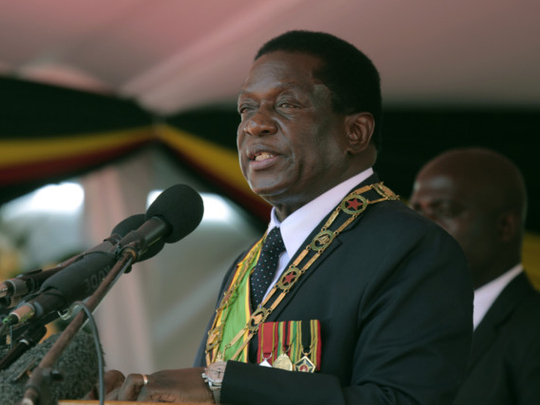
Last week, on the sidelines of the meeting in London of the Commonwealth heads of government, I was invited to discuss my country Zimbabwe’s return to the organisation. As is well-known, Zimbabwe left this club in 2003, but the country’s new President, Emmerson Mnangagwa, has pledged to re-engage with the international community and normalise relations, particularly with those countries with which we have had hostile interactions.
The London meeting took place in the week that Zimbabwe celebrated the 38th anniversary of its independence. That we re-engage with the world while remembering our past is vitally important. Zimbabwe’s challenges emanate partly from the struggle that all countries, particularly those as young as we are, must go through as they seek to interpret and make sense of their history.
We can only do so by confronting the past head-on. Contested and painful as it is, our history cannot be changed. We can only learn from it. Most importantly, we need to unlearn the wrong things that we learned in the past.
It is precisely because we are keen to do this that we want to establish relations of friendship, equality and mutual respect, even with those with whom our past relations have been fractious. Our national ethos impels us to seek full readmission into the Commonwealth, whose amity, values and ethics we share, and to reclaim our place in the international community to which we rightly belong.
We are aware of not only our international commitments, but also our obligations to our own people. Our government has undertaken to ensure that the Zimbabwe electoral commission will conduct free, fair, non-violent and credible elections, and that the outcome fully respects the will of the people. The political parties that will contest the election are also discussing draft amendments to the electoral laws.
We believe that by working together we can create an environment in which Zimbabweans freely express their political will in a process accepted by all political parties. This year, we have welcomed election observers from more than 50 countries and non-governmental organisations, including those based in Zimbabwe.
Our pledge to re-engage with the Commonwealth is a recognition that Zimbabwe is part of an increasingly interdependent world. The ever-rising flows of capital, goods and services, and labour across borders make it impossible for any country to be an island. But to attract international capital requires setting in place the right conditions.
To this end, we have revised the negative aspects that may have resulted from our two key empowerment programmes: Land reform and the indigenisation policy. While recognising that the former has been concluded and is irreversible, we are committed to unlearning the wrongs that have had a chilling effect on investment. Former farm owners will be compensated in accordance with our laws. Crucially, we will conduct a full land audit so our land reform programme benefits all who call Zimbabwe home, without discrimination.
We have put in place a national investment policy statement, which highlights opportunities to would-be investors. We are processing a bill that will give legal effect to this statement and provide for a strengthened institutional investment platform. We are committed to honouring all bilateral investment and protection agreements.
We recognise that investment must not only come from outside our borders, but that our own people must feel invested in their economy. To this end, a national financial inclusion strategy will promote participation in the economy of marginalised groups, particularly women and youth. We also encourage the participation of the millions of Zimbabweans in the diaspora who have made other nations their temporary abode, but will always have a home in Zimbabwe.
At his inauguration, President Mnangagwa declared that Zimbabwe’s era of isolationism was over. Indeed, Zimbabwe is embracing the world, and its national interests are enhanced through positively engaging with multilateral and international partners.
I left London assured that Zimbabwe will be welcomed not only into the Commonwealth, but also the wider family of nations. And I leave that Zimbabwe is not only open for business, it is also open to friendship and new partnerships.
— Guardian News & Media Ltd
S.B. Moyo is Zimbabwe’s Minister of Foreign Affairs and International Trade.








